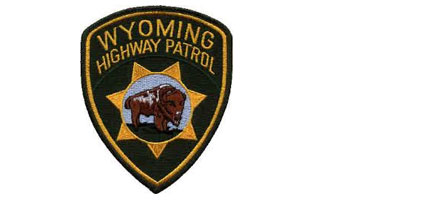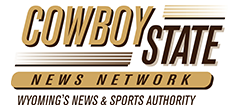
WHP 1-11-22
The Commercial Vehicle Safety Alliance is launching a new annual three-day Human Trafficking Awareness Initiative.
As many as 24.9 million men, women, and children are sold into prostitution, domestic servitude, or other forced labor around the globe. As commercial motor vehicle drivers and inspectors travel up and down our roadways every day, and are more likely to be one of the first to see crimes of human trafficking. That’s why awareness is critical. Knowing what to look for and how to respond is essential.
This initiative is an awareness and outreach effort to educate commercial motor vehicle drivers, motor carriers, law enforcement officers, and the general public about the crime of human trafficking, the signs to look for, and what to do if you suspect someone is being trafficked.
“Human trafficking has been proven to be a growing problem in the US and Wyoming,” said Wyoming Highway Patrol Commercial Carrier Lieutenant Dustin Ragon. “This is why the Wyoming Highway Patrol is assisting in the Human Trafficking Awareness Initiative to bring more light and gain assistance from the public and commercial drivers to reduce the occurrences.”
Men, women, and children of all ages and backgrounds can become victims of this crime, occurring in every world region. Human traffickers often use violence or fraudulent employment agencies and fake promises of education and job opportunities to trick and coerce their victims.
Since human trafficking is often a crime hidden in plain sight, it is vital to be aware of its warning signs. Some indications that a person may be a victim of human trafficking include (especially in the case of women and children):
- Appearing malnourished
- Showing signs of physical injuries and abuse
- Avoiding eye contact, social interaction, and authority figures/law enforcement
- Seeming to adhere to scripted or rehearsed responses in social interaction
- Lacking official identification documents
- Appearing destitute/lacking personal possessions
- Working excessively long hours
- Living at a place of employment
- Checking into hotels/motels with older males and referring to those males as a boyfriend or “daddy,” which is often street slang for pimp
- Poor physical or dental health
- Tattoos/ branding on the neck or lower back
- Untreated sexually transmitted diseases
- Small children serving in a family restaurant
- Security measures that appear to keep people inside an establishment – barbed wire inside of a fence, bars covering the insides of windows
- Not allowing people to go into public alone or speak for themselves
If you or someone you know is a victim of human trafficking, call the National Human Trafficking Hotline at 1-(888) 373-7888 or 911. The hotline is available 24 hours a day, seven days a week in more than 200 languages. All calls are confidential and answered live by highly trained Anti-trafficking hotline advocates.
